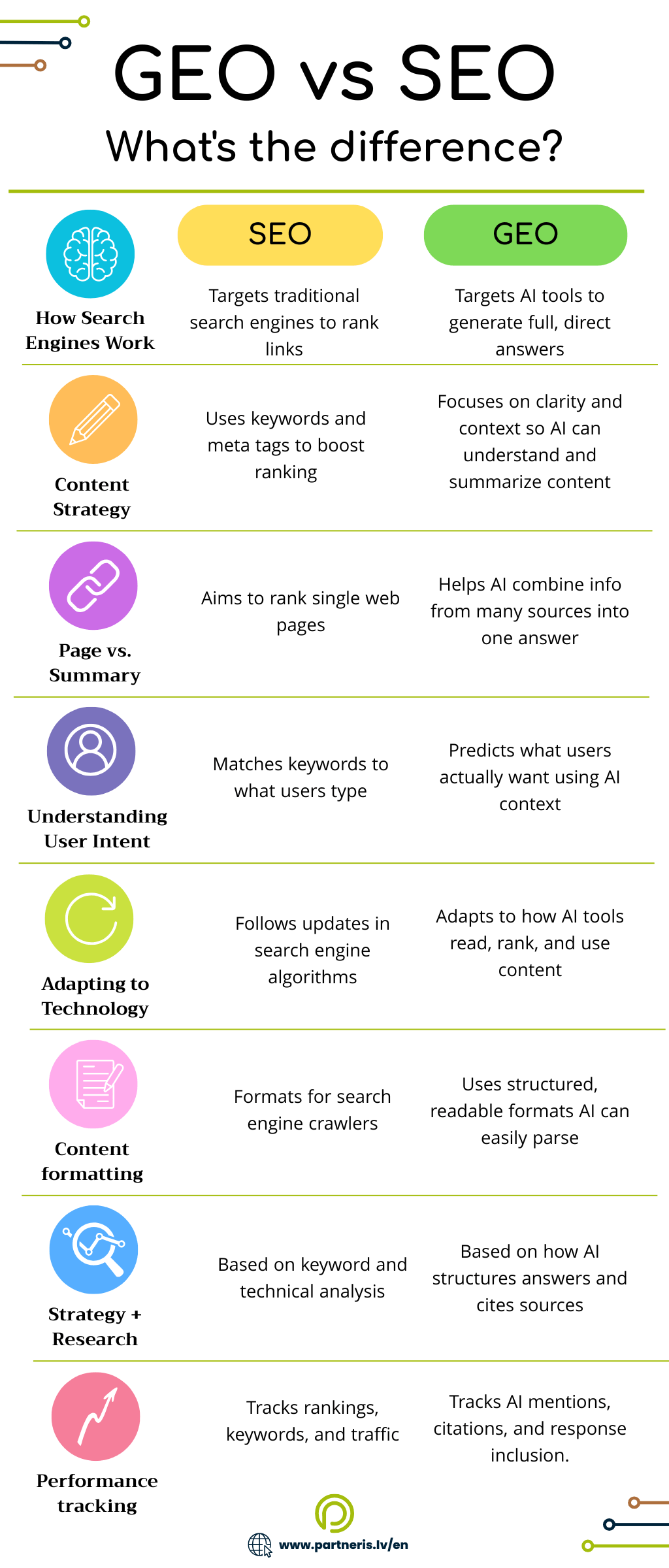-1060x400.png)
The rise of AI-powered search engines is reshaping how users find information—and how brands get discovered. In this landscape, a new term has emerged: Generative Engine Optimization (GEO). While Search Engine Optimization (SEO) has long been the dominant strategy for increasing online visibility, GEO represents a powerful shift toward optimization for AI-generated responses instead of traditional search engine results.
What is Generative Engine Optimization (GEO)?
GEO is the process of optimizing content so that AI-powered search engines, like ChatGPT, Perplexity, Gemini, Google SGE (Search Generative Experience), and Microsoft Copilot, surface your content in their generated answers. Rather than ranking in the top 10 blue links of Google, GEO aims to get your content quoted or referenced directly in conversational, context-rich answers.

Why GEO Matters Now
As of 2025:
- Over 30% of Gen Z users start their search with TikTok or an AI assistant instead of Google (WSJ, Googling Is for Old People. That’s a Problem for Google.).
- Google’s AI Overviews (SGE) are gradually being introduced across European markets, and early adoption indicates a decline in click-through rates to traditional websites, as users increasingly rely on AI-generated summaries for quick answers. (The Verge, AI search is starting to kill Google’s ‘ten blue links’)
- AI assistants like Perplexity.ai and ChatGPT are directly answering queries that once sent traffic to websites.
This means your high-ranking blog post may not get seen at all—unless it's structured in a way AI finds usable.
How to Optimize for GEO
1.Publish trustworthy, well-structured content
- Use clear headings, summaries, and bulleted points.
- Structure like an AI would: question → short answer → deeper dive.
2.Use natural, conversational language
- Write as if answering a question in a forum or chat.
3.Build topical authority
- AI favors sources that cover a niche comprehensively.
- Interlink your content meaningfully.
4.Include verifiable facts and sources
- Cite studies, link to primary research, and add author credentials.
5.Test with AI tools
- Ask ChatGPT or Perplexity your target queries and see if your content shows up or is referenced.
- Adjust accordingly.
SEO Isn’t Dead—but It’s Changing
Traditional SEO remains relevant, especially for:
- Local search
- Product pages
- Time-sensitive news
- Evergreen how-tos
But without GEO, your traffic could shrink as AI-generated summaries dominate the top of search experiences.
Solution?
The future of discoverability is hybrid.
Combine SEO best practices with GEO strategies to make your content visible across both search results and AI-generated summaries. Brands that adapt early will gain a competitive edge—those who don’t may fade from digital visibility altogether.
If you would like to find out more useful information, check out our other blog posts.
Subscribe to our newsletter and be the first to know about the latest blog posts and offers!

Leave a Comment